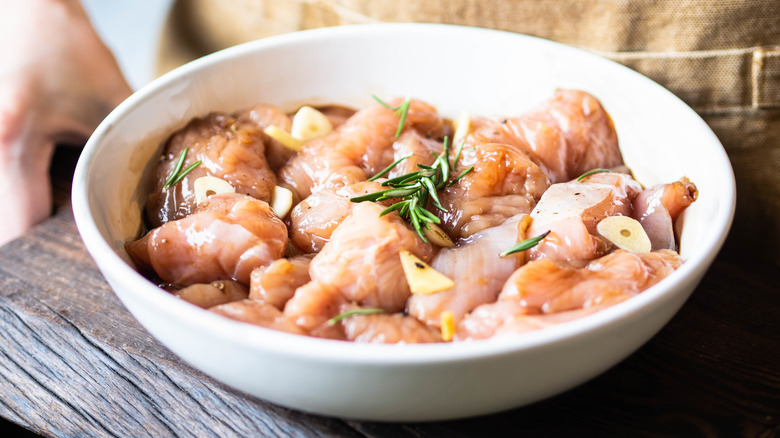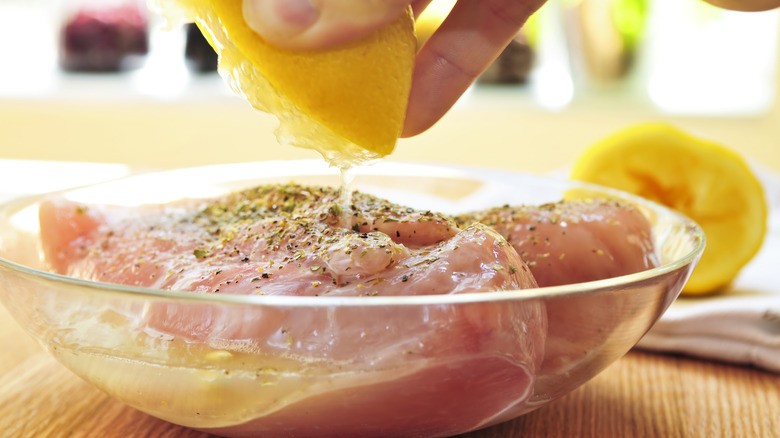Why 24-Hour Marinades Aren't The Best Choice When Cooking Chicken
Many home cooks know that marinating meat is a good thing, and many recipes call for extended periods of time for marinades. It's easy to assume that all meat can and should be marinated for up to 24 hours and that having the day-long marinade will infuse deep flavor. However, not all cuts of meat or all recipes need to marinate that long, and that's especially true for chicken. In fact, chicken only needs to marinate for two to three hours. For smaller pieces, 15-30 minutes is enough to do the job. Anything more than a few hours many not affect the flavor too much, and going too long can negatively impact the texture and taste.
Marinating chicken primarily helps to tenderize the meat and enhance its flavor by allowing acidic ingredients like lemon juice, vinegar, and yogurt to break down tougher muscle fibers. It also helps with the caramelization on the exterior, ensuring a pleasing appearance. The process makes the chicken more succulent and flavorful, especially given its naturally mild taste. However, over-marinating can have adverse effects. A period of one to eight hours typically achieves a good balance of seasoning, tenderness, and juiciness, but extended time can lead to an unpleasant texture. The meat can become rubbery and overly acidic or salty. It's best to follow recommended marinating times to ensure the chicken retains its ideal texture and flavor.
Proper chicken marinating and storage
Following recipe instructions carefully is a smart way to ensure you hit the right amount of time for marinating. This easy marinated baked chicken calls for at least one hour and up to six hours. If you aren't following a recipe, it's best to stick to a few hours, maximum. For example, if you plan on marinating your meat for chicken parmesan, you can add the meat to the marinade, do your prep work, and then fry the chicken. Alternatively, you can refrigerate the chicken in the marinade for a few hours before you prepare the dish. Remember that anything over 24 hours is actually unsafe, as it can become a breeding ground for bacteria. If you end up not cooking your chicken when you expected or you find it's approaching the one-day mark and need additional time, you can stick the chicken in the freezer to halt the process.
For additional food safety measures, always marinate the chicken in the refrigerator to keep it at a safe temperature and prevent bacterial growth. Never reuse marinade that has been in contact with raw chicken. Use fresh marinade for basting or as a sauce. Finally, use up any leftover cooked chicken within three to four days.

